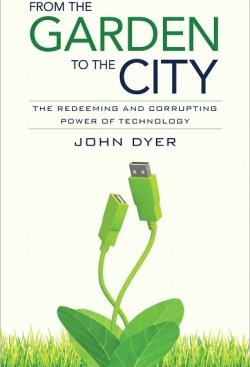John Dyer
Kregel Publications, 2011, 192 pp., $13.99|
Most youth workers say we should use technology at all costs to reach students and that the way we reach out changes, but the message doesn’t. Technology can be redemptive, as well as corrupting, says John Dyer, who provides a theological way to think through the use of technology in From the Garden to the City.
John Dyer, earned his Th.M. from Dallas Theological Seminary and currently works as the director of Web development at DTS. His theological education and practical work experience in technology gives him an edge in walking the line of using technology redemptively. A professor once told him, “One of the most dangerous things you can believe in this world is that technology is neutral.” This statement rocked Dyer’s world and sent him on a journey to understand technology in the context of God’s larger redemptive drama.
“At one end of this story is a pristine garden prepared by God for humankind to develop and transform,” he writes. “At the other end is a glorious, heavenly city full of human creations, art and technology.” Dyer argues that while humans transform our world continuously through technology, one day all of these technologies will be redeemed when heaven comes to earth.
The book is structured around four guide points: reflection, rebellion, redemption and restoration. By reflection, he means that humans reflect God’s ability to create. Innately, technology is good because it is a way we reflect the image of God as Creator. Unfortunately, there is rebellion at the beginning of the story. When Adam and Eve rebelled against God, they reacted by making clothes, which served as the first form of technology. Thankfully, throughout history God has redeemed technology. For example, God lines up the tablets given to Moses with the invention of writing so these laws would be written down. Finally, there will be a restoration in which God ultimately will take man’s technology and include it in the final glorious city that will come to earth in the end of time.
This book is an important read for youth workers because student’s lives are so immersed in technology. iPhones, texting, Internet, laptops from schools and so much more. It is rare that teens and those involved with them would ask questions about how these technologies are shaping their lives. For the youth worker who wants to minister effectively in this technology-rich population, this book will help navigate through ways to approach and redeem technology.




